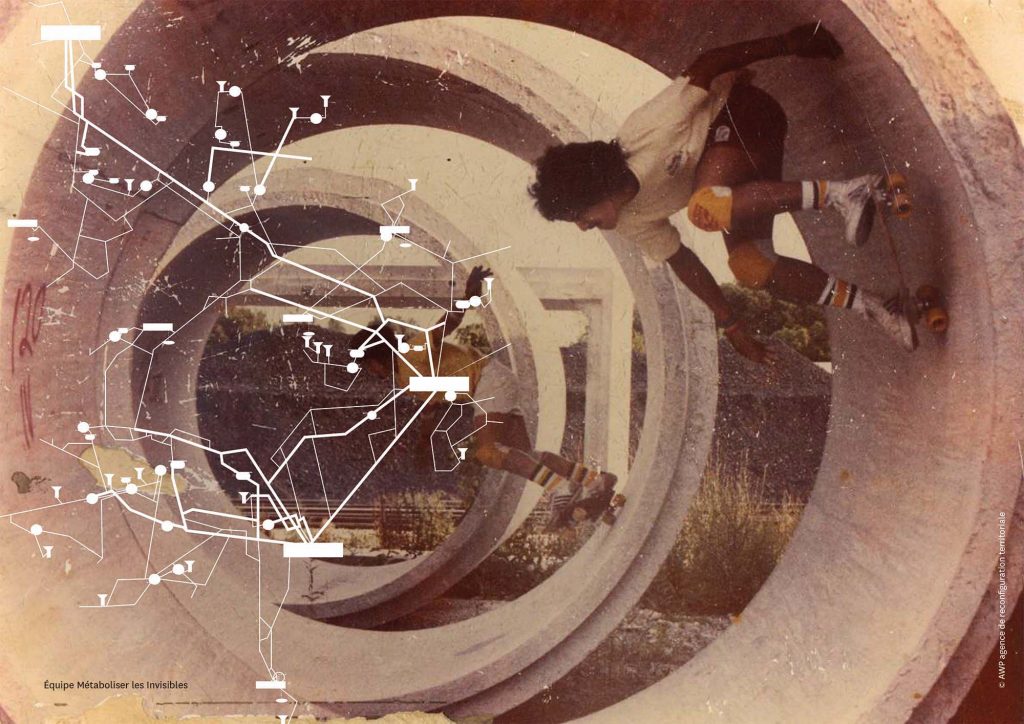resources – networks – slow city – underground – night
Matthias Armengaud and his team dare to reverse their gaze by analysing the territories of the invisible, that is to say networks in all their forms (social, user and infrastructure networks) and their potential. This includes highlighting interactions, efficiency thresholds, economies of scale and network governance. The tools proposed will range from an Atlas drawing the landscapes of Invisibles, to models of their interactions.
Team:
Project management:
- Matthias Armengaud – Architect, urban planner, landscaper, AWP territorial reconfiguration agency
- Marc Armengaud – Philosopher, urban planner, AWP territorial reconfiguration agency
- Martin Rein-Cano – Landscaper, urban planner, artist, TOPOTEK 1
- Dieter Dietz – Architect, researcher, Laboratory ALICE – EPF Lausanne
Experts, led by Marc Armengaud:
- Géraldine Pflieger, University of Geneva
- Marc Schneiter, Schneiter Verkehrsplanung AG
- Paul Schneeberger, Schweizer Städteverband
- Jeanne Della Casa, FAS L-architectes
- Jean Delons, Vinci
- Jean-François Capeille – Environment and Health, AIA Foundation
- Stefan Kaegi, Rimini protokoll
- Yann Moulier Boutang, University of Technology of Compiègne, Revue Multitudes
- Thierry Marcou, FING
Design offices:
- Olivier Arquie, ALTO STEP
- Laurent Perusat, AIA life designers
- Grégory Houillon, BG Consulting Engineers
Project team, led by Matthias Armengaud:
- Bérénice Gentil, urban planner-architect landscaper, AWP territorial reconfiguration agency
- Charles Bouscasse, urban planner-architect landscaper, AWP territorial reconfiguration agency
- Laureline Guilpain, urban planner-architect landscaper, AWP territorial reconfiguration agency
- Maria Fernandez, architect, TOPOTEK 1
- Alizée Daguzan, architect, TOPOTEK 1
- Jean Lafontaine-Carboni, doctoral student, EPFL-ALICE
- Aurélie Dupuis, doctoral student, EPFL-ALICE

